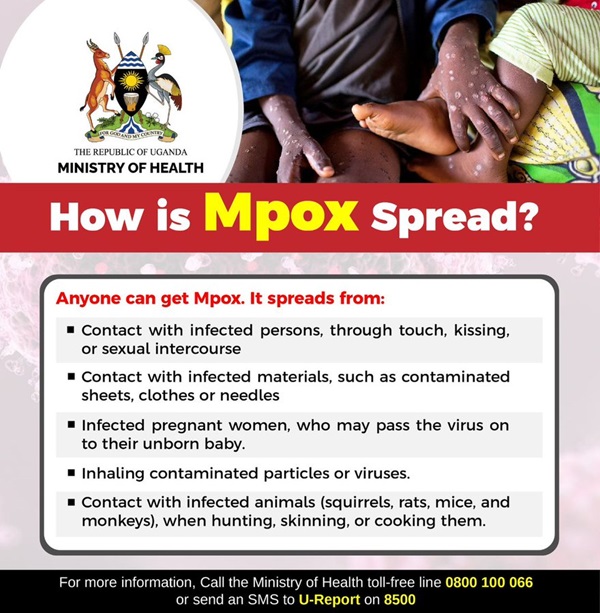
ADDIS ABABA | Xinhua | The total number of mpox cases in Africa has risen to 29,152, including 6,105 confirmed cases and 738 deaths, since the start of 2024, according to the Africa Centers for Disease Control and Prevention (Africa CDC).
Africa CDC Director-General Jean Kaseya, in addressing a special online media briefing on the multi-country mpox outbreak in Africa Thursday evening, said that the continent reported 2,912 new cases in the past week alone, including 374 confirmed cases and 14 deaths, bringing the total number of cases reported this year to 29,152.
Kaseya said that the cases were reported from 15 African countries across all five regions of the continent and noted that cross-border movement, malnutrition and unsafe sexual practices are among the major risk factors for mpox.
In mid-August, the Africa CDC declared the ongoing mpox outbreak in Africa a Public Health Emergency of Continental Security. Soon after, the World Health Organization (WHO) also declared mpox a public health emergency of international concern, activating its highest level of global alert for mpox for the second time in two years.
The Africa CDC also recently announced the launch of a joint continental response plan with the WHO. The six-month plan, running from September 2024 to February 2025, has an estimated budget of nearly 600 million U.S. dollars. Of this, 55 percent is allocated to mpox response efforts in affected countries, while the remaining 45 percent is directed toward operational and technical support through partner organizations.
Mpox, also known as monkeypox, was first detected in laboratory monkeys in 1958. It is believed to be transmitted from wild animals, such as rodents, to humans or through human-to-human contact. It is a rare viral disease typically spread through body fluids, respiratory droplets and other contaminated materials. The infection usually causes fever, rash and swollen lymph nodes. ■
 The Independent Uganda: You get the Truth we Pay the Price
The Independent Uganda: You get the Truth we Pay the Price



